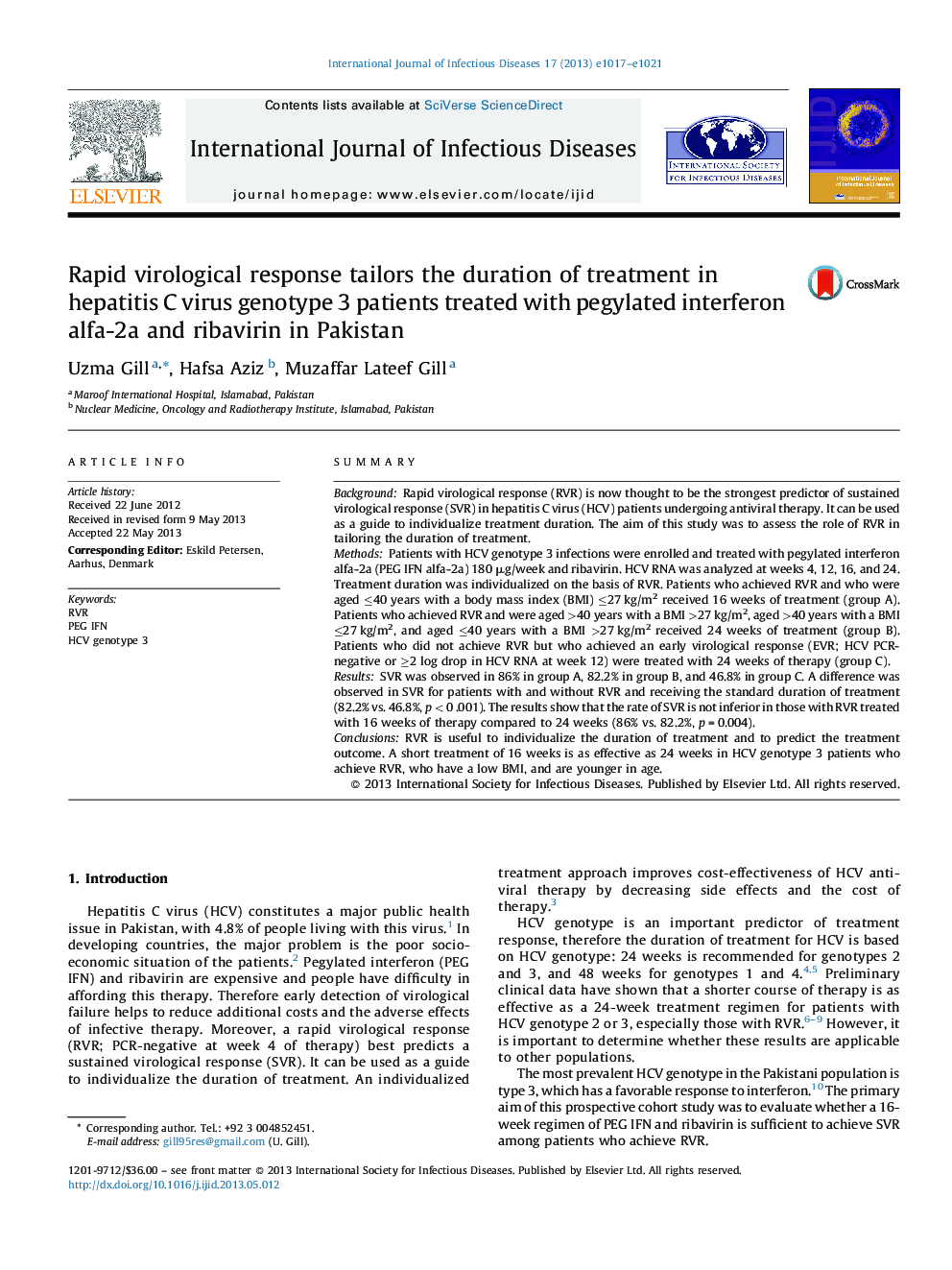| Article ID | Journal | Published Year | Pages | File Type |
|---|---|---|---|---|
| 3362946 | International Journal of Infectious Diseases | 2013 | 5 Pages |
SummaryBackgroundRapid virological response (RVR) is now thought to be the strongest predictor of sustained virological response (SVR) in hepatitis C virus (HCV) patients undergoing antiviral therapy. It can be used as a guide to individualize treatment duration. The aim of this study was to assess the role of RVR in tailoring the duration of treatment.MethodsPatients with HCV genotype 3 infections were enrolled and treated with pegylated interferon alfa-2a (PEG IFN alfa-2a) 180 μg/week and ribavirin. HCV RNA was analyzed at weeks 4, 12, 16, and 24. Treatment duration was individualized on the basis of RVR. Patients who achieved RVR and who were aged ≤40 years with a body mass index (BMI) ≤27 kg/m2 received 16 weeks of treatment (group A). Patients who achieved RVR and were aged >40 years with a BMI >27 kg/m2, aged >40 years with a BMI ≤27 kg/m2, and aged ≤40 years with a BMI >27 kg/m2 received 24 weeks of treatment (group B). Patients who did not achieve RVR but who achieved an early virological response (EVR; HCV PCR-negative or ≥2 log drop in HCV RNA at week 12) were treated with 24 weeks of therapy (group C).ResultsSVR was observed in 86% in group A, 82.2% in group B, and 46.8% in group C. A difference was observed in SVR for patients with and without RVR and receiving the standard duration of treatment (82.2% vs. 46.8%, p < 0 .001). The results show that the rate of SVR is not inferior in those with RVR treated with 16 weeks of therapy compared to 24 weeks (86% vs. 82.2%, p = 0.004).ConclusionsRVR is useful to individualize the duration of treatment and to predict the treatment outcome. A short treatment of 16 weeks is as effective as 24 weeks in HCV genotype 3 patients who achieve RVR, who have a low BMI, and are younger in age.
